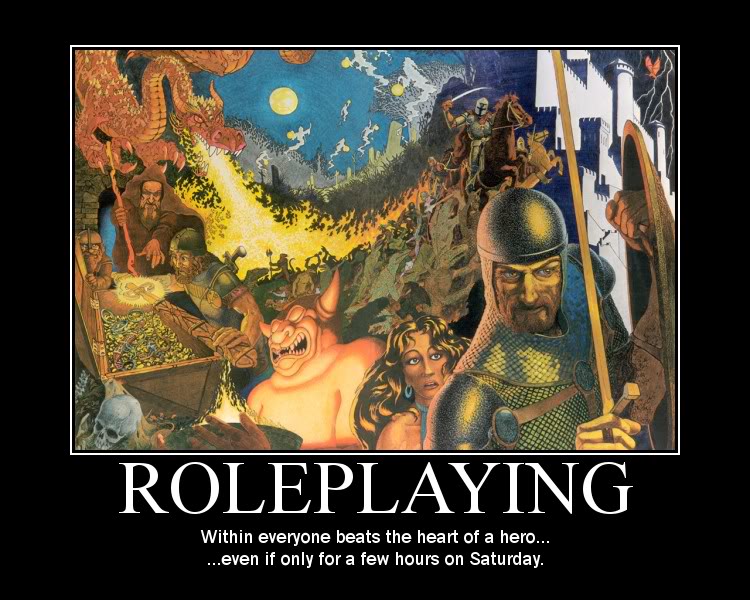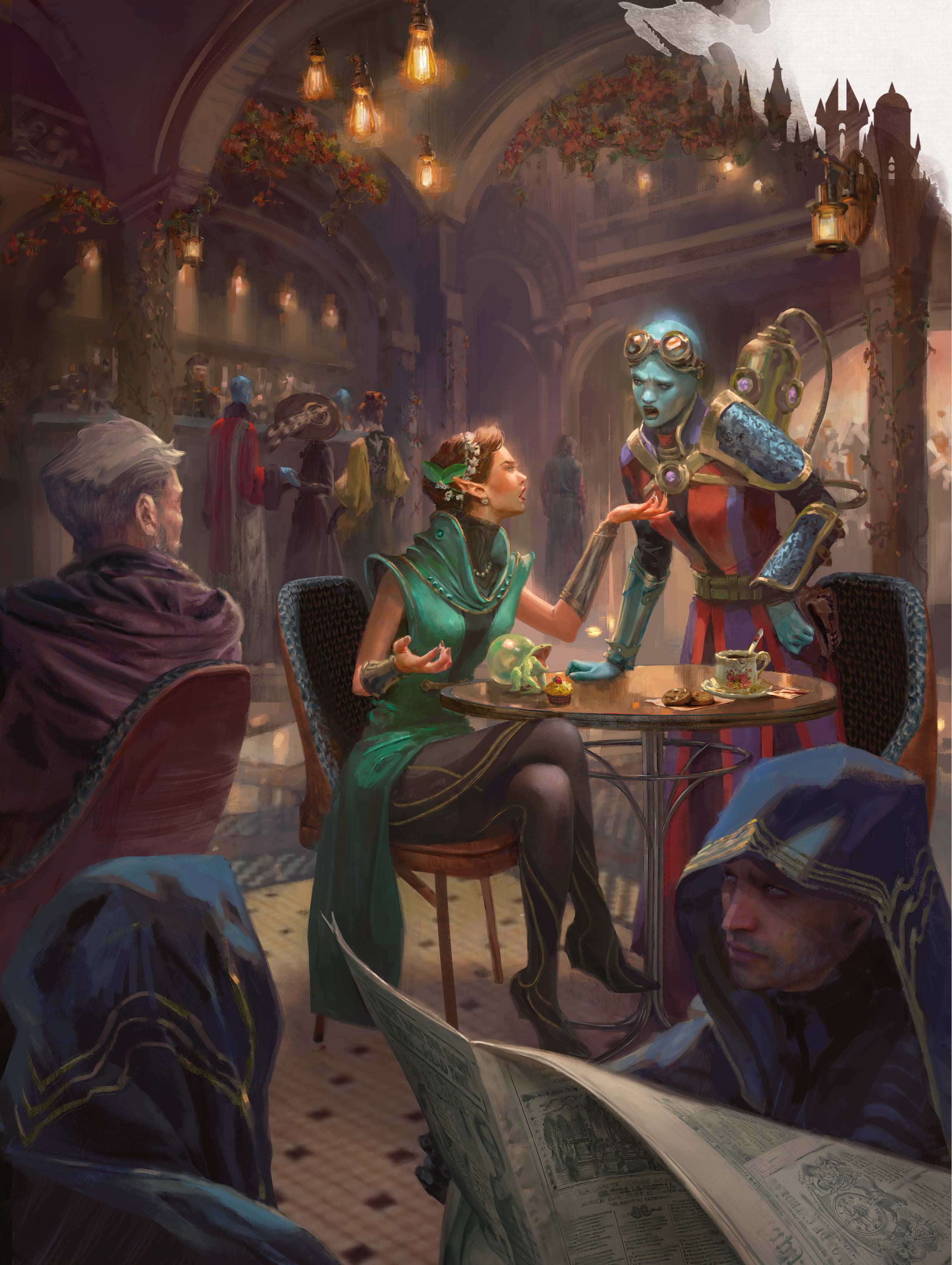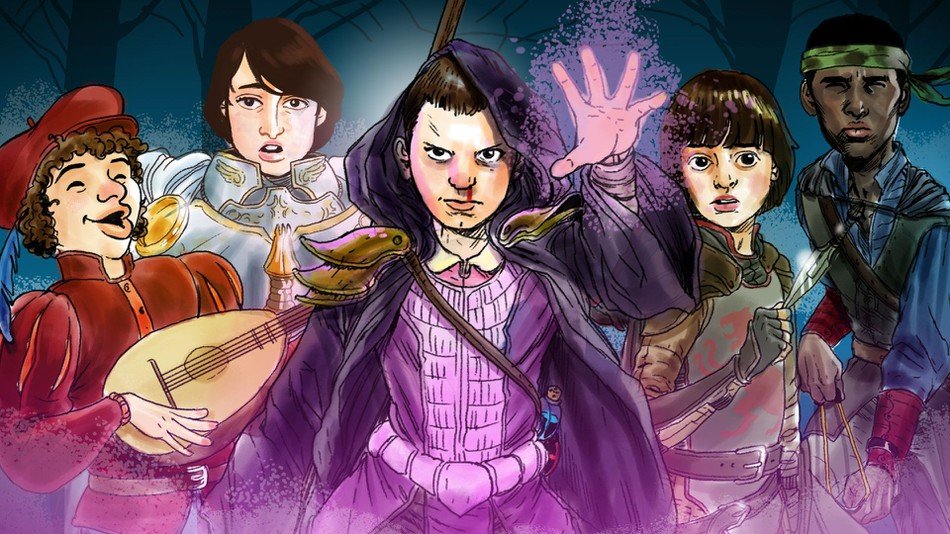
Education Adventures: Savor the Moments in D&D
Education Adventures is a column written by educator Megan Hardy. Through the Outschool program, Megan teaches a series of Life Skills courses using fifth edition Dungeons & Dragons. During the six week campaign, heroes head out to save the land from an evil ruler, facing challenges and battles and making friends along the way while learning logic and critical thinking. The campaign is designed specifically for children ages 9-14 and highlights problem solving, logic puzzles and team work while participating in a grand adventure. In the Education Adventures column, Megan shares insights and lessons she learns through teaching D&D for students and their experiences.

Moments in D&D for students
I’ve been thinking of the differences in how adults play D&D versus how kids play it and a few things stand out in my mind. One of the main things is how they approach battles and how that impacts their view of the game. Of course, first I had to think about the adults I play with to draw on my own personal experience.
I was recently talking with my regular Sunday group before our game started when the conversation turned to past deeds. The discussion was “remember that time we fought the 40 berserkers” or “that one time we fought a dragon.” When talking with my fellow adult players, we almost always focus on the victory. When I listen to my students talking before their games, it’s almost always along the lines of “remember when I touched the water elemental last time during battle,” or “Oh, I’m going to make something explode like last time,” and “I’m going to hug my spider before going into battle.” For them, it’s not the outcome that matters, but the moments that led up to it.
My students savor the little moments in the game. They hardly ever just attack, opting instead to throw in a little something extra. I often hear people say it’s about the journey, not the destination. The kids I teach really seem to have this mentality. It’s the little moments that make the game for them. I have been trying to pinpoint the exact difference in mentality the kids have versus many adult players and I think it comes to their notion of roleplaying.
Oftentimes when playing D&D we separate it into two parts: roleplaying and combat. Kids don’t do this, and if you try to force them to do so, you will ruin their experience. My students are some of the best roleplayers I have ever seen. They immerse themselves into their characters. I had one student last night who explained every action she was taking in battle based off of a detailed series of events that had occurred to her previously. For them combat is just an extension of the roleplaying. It’s a chance to take turns having the spotlight on your character and go to town.
The result is that they don’t just move, action and bonus action. They throw in little extras. One student was shouting curses in every language he spoke — he was so angry because that’s what his character would do. One student fainted after her action because they were fighting spiders and she is terrified of spiders. One student did cheesy car salesman-style finger guns in combat. One character jumped into the bushes to hide, but insisted on lifting his hand out to give a thumbs up when something good happened. Oh…and if you have animals in combat you can expect them to be handled. I allow most of this, because for them it’s these little funny moments in battle that make the campaign.
 The end result of this is seeing the other players respond to what each other are doing. They crack up, cheer, clap and respond. There is a chat window they can type in during the game. They are constantly typing and responding to what they’re doing on there.
The end result of this is seeing the other players respond to what each other are doing. They crack up, cheer, clap and respond. There is a chat window they can type in during the game. They are constantly typing and responding to what they’re doing on there.
Our sessions are only an hour and half long, but the chat windows often have well over a hundred messages. It isn’t “oh man, what a great a kill” or “let’s figure out how to beat this thing.” Instead, it’s “I’m going to sit down after my turn and read from my book” or “I’m playing my musical instrument right now. Who wants to dance?”
None of this takes away from the game. They are still playing and doing what they are supposed to do. But they are enjoying the small aspects of their characters in a big way.
My second part of the campaign just started a little over a week ago. Different students from different versions of the first part of the campaign are in that class. When they first met up, it was the small moments they were sharing. They weren’t talking about if they had defeated the big bad from the first campaign. They were talking about how they lost a foot, why they have this animal with them, and what happened to make them no longer trust this character. The actual outcome of the campaign was secondary to the small moments that led up to it.
Something else comes from focusing on the little moments. Suddenly, you aren’t so concerned with your character being hit, hurt, or even dying. All of that starts to feed into the story the kids are creating. I had one student who had a pet pseudodragon who was knocked down to 0 hit points during combat. Now, let me say that this character loved his pet dragon. It was a big part of who his character was. I was prepared for possible tears or anger. Instead he started discussing with another player how they were going to get it a health potion if they could and if they couldn’t, they would pool all of their gold and try to use it to figure out a way to bring him back. Luckily, the dragon lived, but the group decided he now loved the one who healed it instead of the ranger. This whole exchange dominated the chat discussion while we were in combat. I don’t know if those students cared that they took down a bunch of giant scorpions. But they could all tell you the saga of the Blaze the Pseudodragon.
Another example would be the time that two of my players characters got hit by a fear spell. Instead of complaining, sighing, or showing any displeasure, they played this to the hilt. The other players were in near tears laughing (I might have been as well) and they took fear to the next level. One of them even asked me “Can I accidentally run into the tree full force because I’m so afraid?” I said yes, but you will take a little bit of force damage as a result. They didn’t care. They cared more about the moment of roleplaying than a few points of health.
I think that’s a lesson that we as adult players could take from them. Sometimes we are so focused on completing the quest or beating the monster that we lose a little bit of the fun. We focus on maximizing our damage or landing that killing blow. When things don’t go our way we tend to get upset or frustrated. I have seen arguments began to flare between players or players and the DM. The reason always seems to be that the battle didn’t go according to plan. When your focus isn’t on the battle, but rather the individual moments that make up the battle, you find suddenly that things aren’t so frustrating. So what if you missed the hit? You can still make a funny moment out of it. You might not do as much damage as you would like, but you’re still doing something and you can actually take a moment to have fun watching what your party member is going to do.
Watching my students play has reminded me that this is a game, and games are supposed to be fun. They are supposed to create excitement and laughter. While we don’t want the game to be one big joke, I think as adults we forget the laughter part from time to time. We invest so much in our characters and their success, that we forget it’s the little moments that make the game.
Dungeons & Dragons classes
- Dungeons and Dragons: A Fun Adventure
- Dungeons & Dragons Fun Adventure Part 2: The Revenge of Lolth
- Dungeons & Dragons: Creative Cooperative Roleplaying
- Dungeons & Dragons for Teens
Like this?
Did you enjoy this post? Nerdarchy’s awesome volunteer staff of writers and editors do their best to create engaging, useful and fun content to share. If you like what you find here on our site, consider patronizing us in a good way through Patreon.
On top of reaching our goal of paying our writers, pledging gets you exclusive monthly content for your D&D game, opportunities to game with Nerdarchy, access to patron-only channels on our Discord and more.
With your generous support we’ll continue to create quality content between our YouTube channel and blog, invest in equipment to increase recording quality, and keep creating original publications and products to enhance your tabletop roleplaying and gaming experience.
Thank you for your consideration and as always, until next time stay nerdy!
[amazon_link asins=’0786966254,0786966262,0399580948′ template=’ProductCarousel’ store=’nerdarchy-20′ marketplace=’US’ link_id=’82d20505-8979-11e8-831d-f9c26748560e’]








No Comments